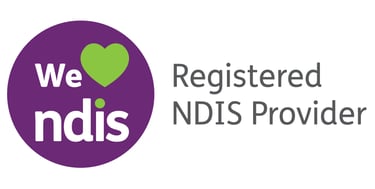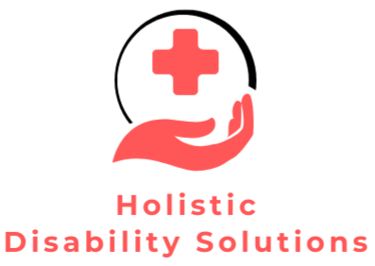Empowering disability support
Compassionate services for individuals with disabilities, promoting independence and holistic well-being
Disability services
Empowering individuals with disabilities through compassionate, inclusive support throughout all 30 services
Please review the information below to see if we can assist you




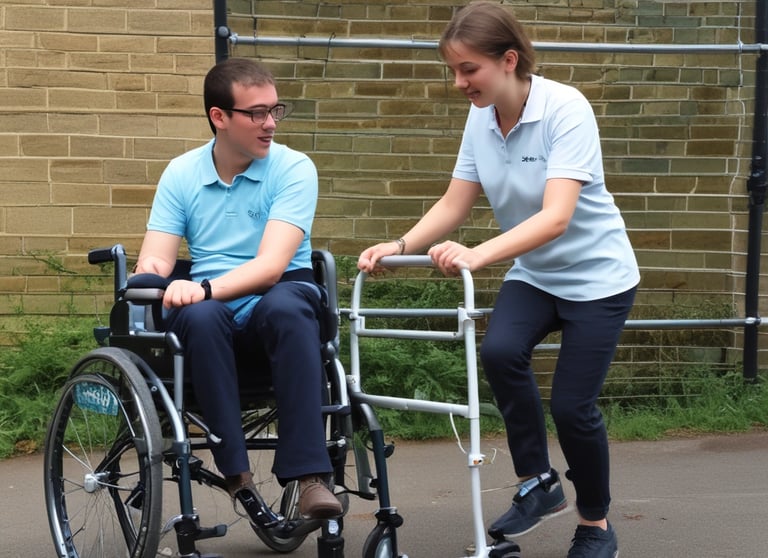

Assistance to access and maintain employment or higher education
Complete our contact us form
This service is designed to help individuals and/or groups secure employment by leveraging professional networks to connect with employers. It also provides support for individuals to access and sustain higher education, involving guidance on setting objectives and strategies to achieve those objectives, as well as ongoing assistance throughout the execution of their plans.
High-intensity daily personal tasks
Personal mobility equipment
This service supports individuals with complex daily personal tasks, including bowel care, wound management, catheter care, and tracheostomy supervision. The service enables providers to assist and engage with high-needs participants in their homes and within the community, offering activity-oriented services.
This enables providers to help participants gain access to mobility aids that promote independence and maintain functionality for as long as possible. This may encompass items such as wheelchairs, walkers, postural supports, as well as equipment like ceiling hoists.
Additional elements of the service that may incur charges include product delivery, setup/installation, product training, and product maintenance.




Assistance in coordinating or managing life stages, transitions and supports
This service helps participants enhance their ability to manage various aspects of life, including navigating different milestones, developing individual skills, and coping with the complexities of the NDIS. Providers may need to offer services such as peer support, mentoring, mental health recovery, and coaching. Several subcategories within this service significantly contribute to the NDIS.
They include:
Level 1 & 2 Support Coordination - This service aids participants in organising their support plans by linking them to various service providers and resources.
Level 2 participants will require more support than Level 1 participants, and their support coordinators will be more involved in their lives to help them understand and navigate their supports at a more advanced level.
Psychosocial Recovery Coach
Psychosocial recovery coaching focuses on helping with recovery-oriented practices, empowering individuals to make their own choices and live meaningful, purposeful lives while being valued members of the community—whether they fully overcome their mental health conditions or learn to manage them.
Recovery coaches will collaborate with participants, their families, carers, and other services to create, plan, and execute a recovery plan.
Assistance with daily personal activities
This service offers help and oversight for personal daily tasks, enabling participants to maintain as much independence as possible. Primarily, it involves assistance with hygiene, dressing, communication, and lifestyle support. In brief, it focuses on delivering general personal care and assistance.
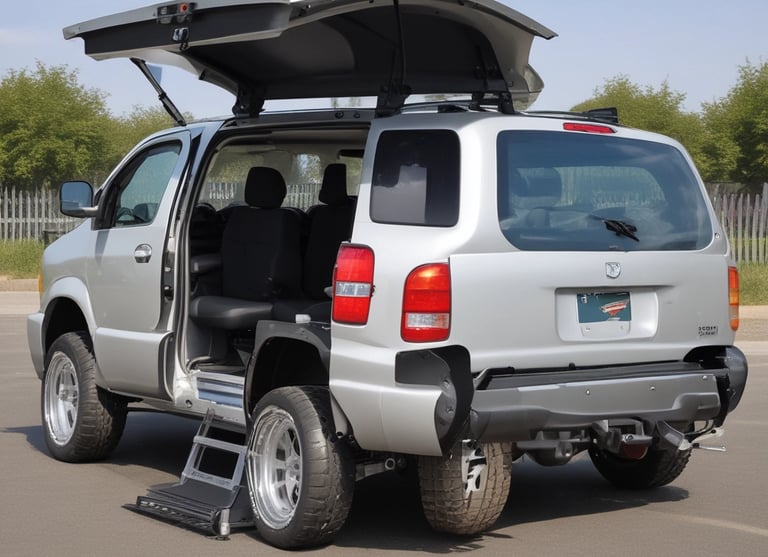

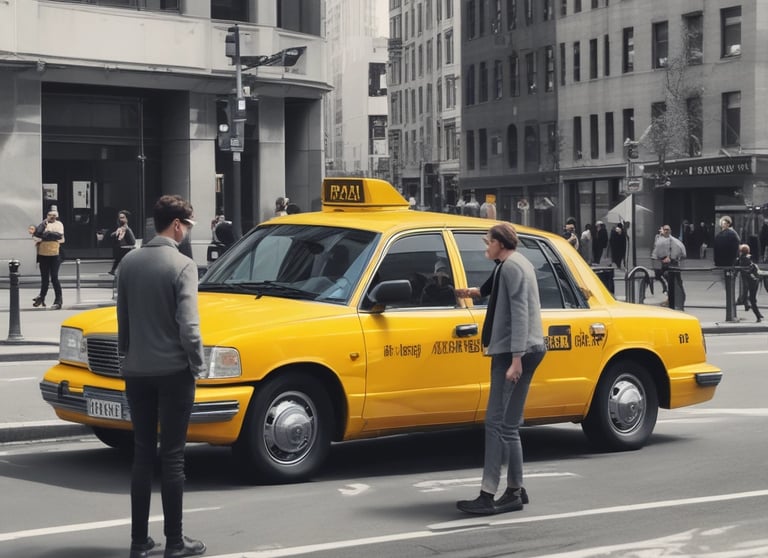

Vehicle modification
Assistance with travel arrangements
This service allows providers to conduct services on a
participant’s vehicle to make it more user-friendly or
sustainable.
Examples include modifications for:
• Safety
• Comfort
• Practicality
This service assists participants with travel/transportation
to and from destinations.


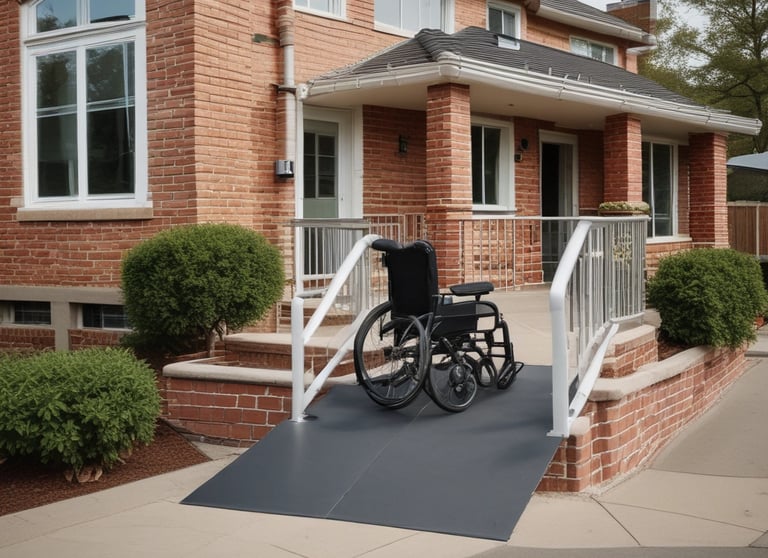

This service helps providers to rent, utilise, or sell
Recreational equipment to bring some enjoyment and
excitement into a participant’s life.
For instance:
• Go-karts
• Stand-up paddle boards
• Sports equipment
Individual living options (ILOs) are housing arrangements that focus on the individual's needs. These include Living Alone, Co-Residency, Host Arrangements, and Living Together options. They serve as an alternative to traditional group home services. This represents a new approach for the NDIS to provide flexible, modern, and customised home and living support packages for individuals with low to moderate disability support requirements.
Assistive equipment for recreation
Home modifications




Community nursing care
Vision equipment
This service enables providers to deliver community
nursing support to participants who need greater
levels of care assistance.
Typically, this service encompasses advanced care or training
provided by an Enrolled Nurse (EN) or Registered Nurse
(RN).
Examples consist of:
• Bowel care
• Wound care
• Catheter care
• Tracheostomy management
• Case Management
• Palliative Care
This helps participants obtain the necessary
equipment to support their visual impairments, including:
• Adaptive communication devices
• Braille equipment
• Video reading technology
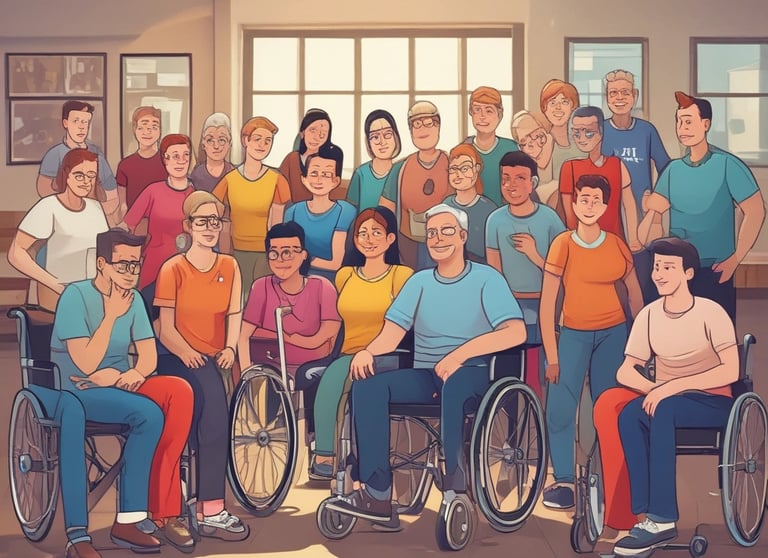



This service helps participants engage in mainstream activities they enjoy, such as football games, fishing trips, bowling, and more.
This service helps participants access care and support within various shared living arrangements, including SIL, STA, MTA, and ILO. It aims to enable participants to live as independently and autonomously as possible while still being in a safe and supportive environment.
The care provided typically encompasses all areas of personal care, including hygiene requirements and other day-to-day supports that participants regularly need.
The different living arrangements are outlined and clarified as follows:
Supported Independent Living (SIL) - This type of support provides assistance with or supervision of daily living tasks in a shared living environment. Usually, 2-7 participants stay here to receive ongoing support (up to 24/7). These services can be delivered in both SDA homes and standard
properties.
Short Term Accommodation (STA) - Short Term Accommodation, including respite, is funding for support and accommodation for a brief period away from a participant's usual home. It covers the cost of their care and accommodation for up to 14 days at a time. It can be used to provide the participant's usual caregivers a break, offer the participant a new environment, and sometimes even a holiday.
Medium Term Accommodation (MTA) - Medium Term Accommodation provides funding for a place to live if participants cannot yet move into their long-term homes because their disability supports are still being arranged. To qualify, they must be in the transition of moving into a long-term home.
Individual Living Options (ILO) - Individual Living Options (ILO) are living arrangements that prioritize the individual. They include Living Alone, Co-Residency, Host Arrangements, and Living Together options. These serve as an alternative to group home services. It is a new way for the NDIS to finance flexible, modern, and personalized home and living support packages for people with low to moderate disability support needs. This service comprises two components - 1. Exploration and design (conducted under 0106) which involves sourcing and managing the property. 2 - Support model (conducted under 0115) which pertains to the care provided in the home.
Innovative community participation
Assistance with daily life tasks in a group or shared living arrangement
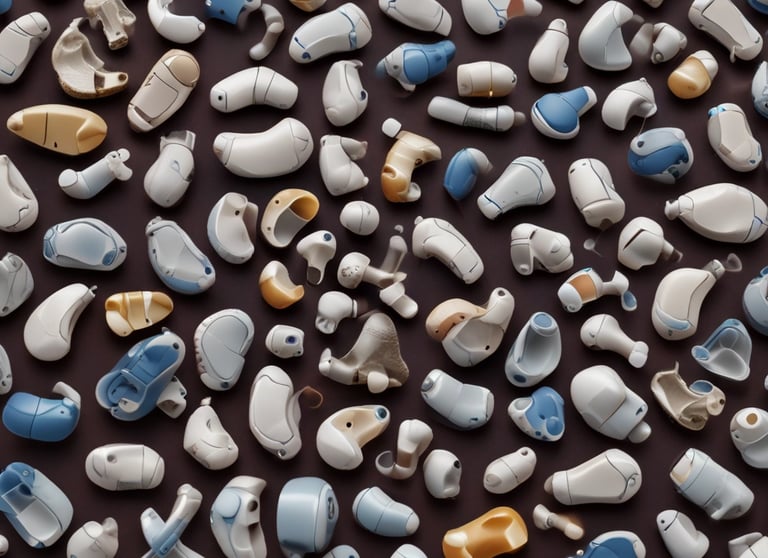

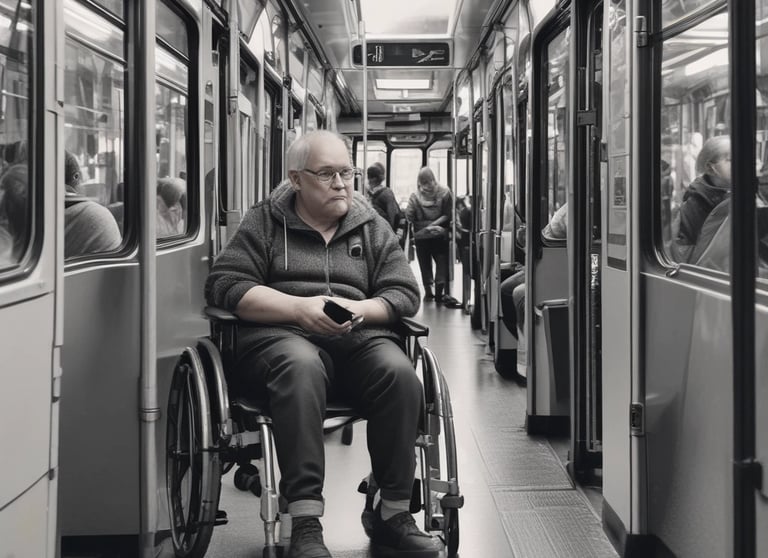

Specialised hearing services
Development of daily care and life skills
This service helps participants obtain and access necessary services to enhance their hearing capabilities and maintain proficiency for as long as possible.
This service helps participants to acquire and sustain essential life skills, including understanding public transportation, creating resumes, managing taxes, saving techniques, social abilities, and skills related to physical activities, among others.
Hearing services
This service helps participants obtain and access the necessary resources to enhance their hearing capabilities and maintain competency for as long as feasible.




Interpreting and translating
Household tasks
This enables providers to help participants gain access to interpreting and translating services. Participants might communicate in a different language or have a speech or hearing impairment, requiring support to maintain their quality of life. Providers can also utilise this service to access free translation services through the NDIS.
Examples consist of:
• Sign language communication
• Verbal language translation
This service helps participants to sustain their general living environment, which includes:
• Cleaning
• Gardening
• Basic indoor & outdoor home maintenance
• Laundry/Linen
• Meal preparation


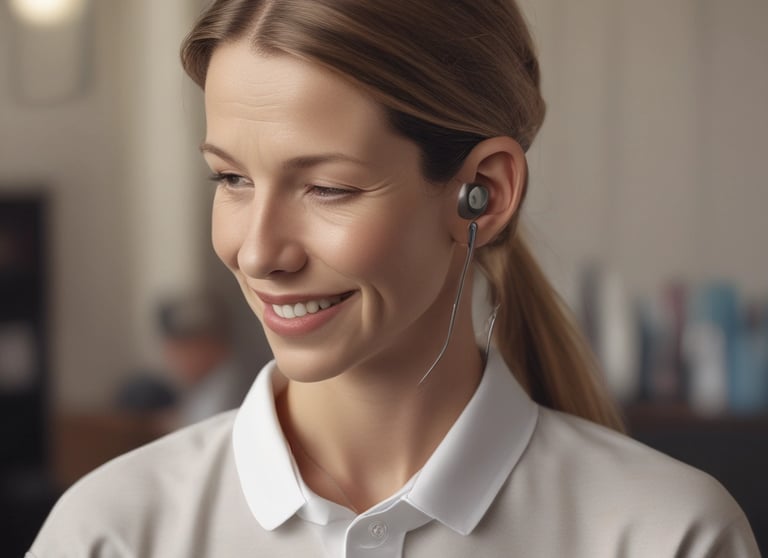

Assistive products in household tasks
Hearing equipment
This service enables providers to furnish participants with the necessary equipment for their homes, enhancing mobility and assisting with tasks to simplify their daily lives. Additional service aspects that may incur charges include product delivery, setup/installation, product training, and maintenance of the equipment.
Examples of products include:
• Aids for cooking
• Aids for cleaning
• Alarms
• Doorbells
• Modified clocks
• Safety & security
• Programmable memory aids
This service helps participants obtain and access the necessary equipment to enhance their hearing abilities
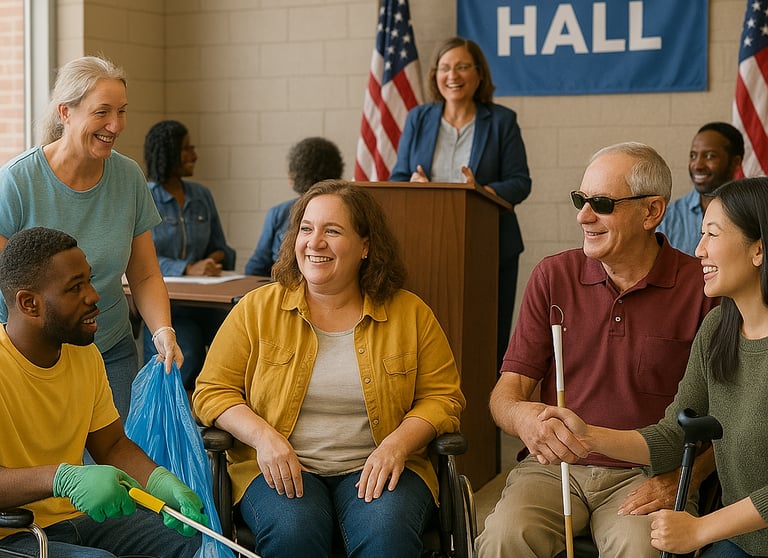

Participation in the community, social and civic activities
This enables service providers to help participants visit various locations in the community, such as shopping excursions, appointments, and recreational activities.


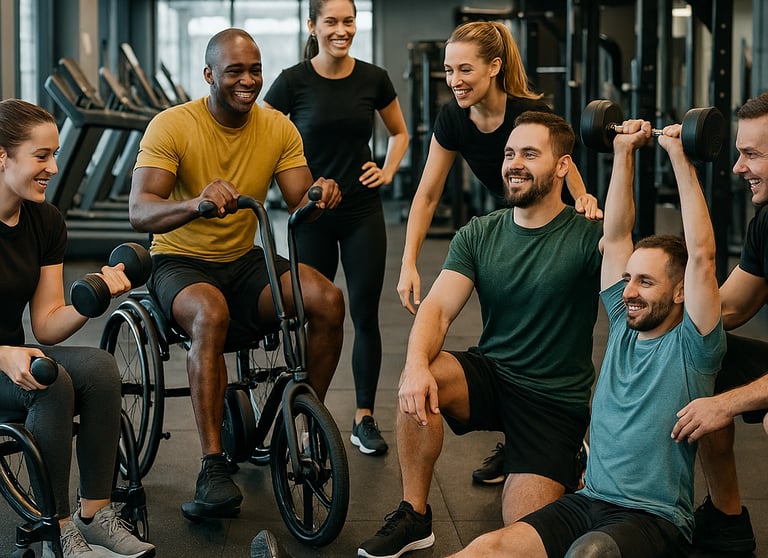

Management of supporting in participants' plans (Plan management)
Exercise physiology and personal training
This enables providers to assist participants in managing the funds they receive from the NDIS for services.
Plan management is responsible for settling invoices from other providers once the service has been finalised.
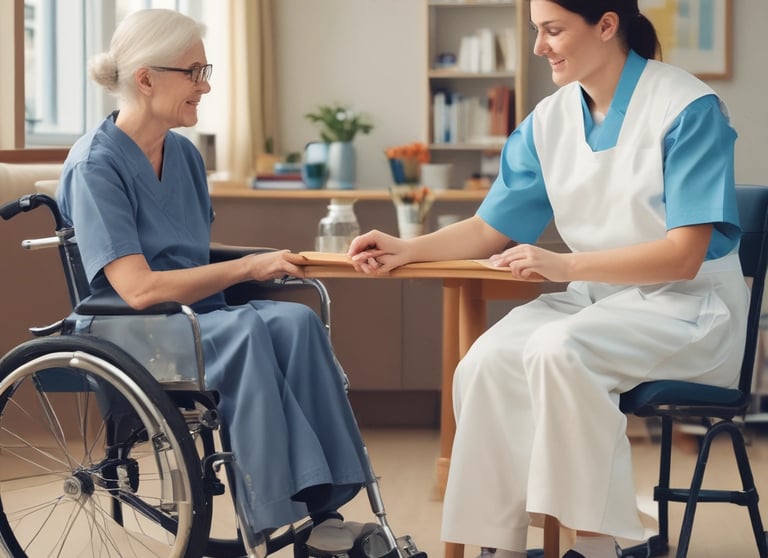

Specialised driver training
Therapeutic supports
This enables providers to help participants with their driving skills and training.
Examples include:
• Assisting in the study of a learner’s permit
• Recommendations for vehicle modifications
• Driver training with or without adjustments
• Helping participants learn how to address their challenges in driving
This enables participants to access a range of support services that are both helpful and therapeutic.
Examples include:
• Physiotherapy
• Psychology
• Counselling
• Speech Therapy
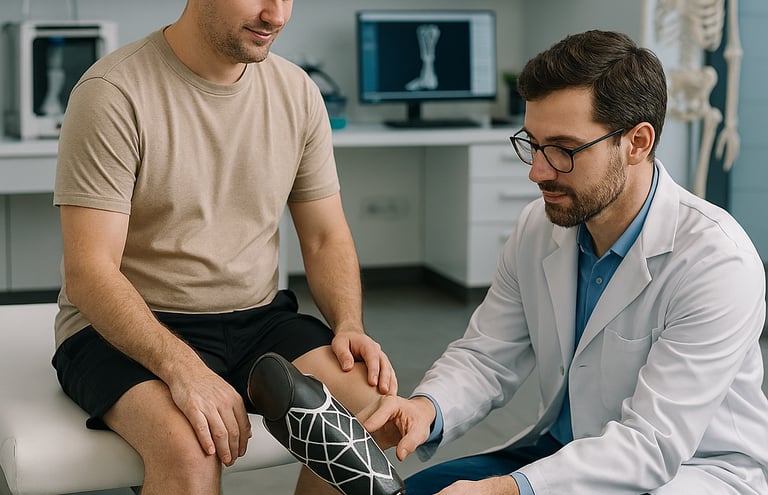

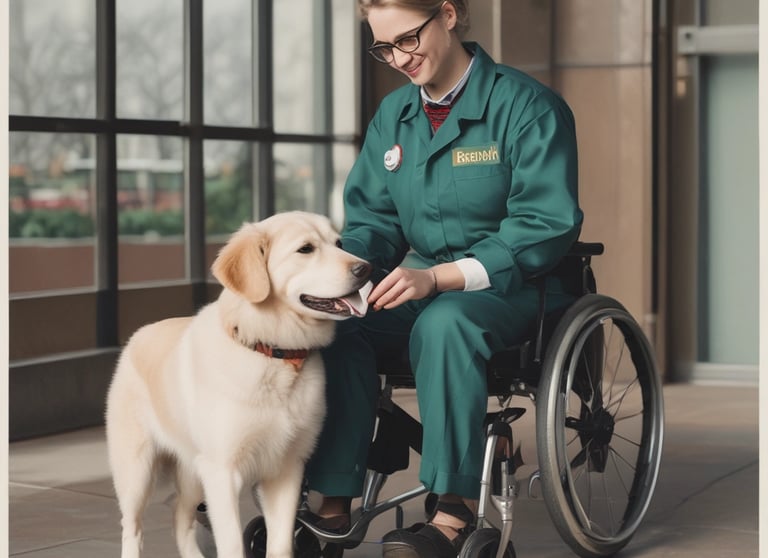

Specialised support employment
Assistance animals
This enables providers to help participants obtain and sustain employment, with the service tailored to the individual participant’s needs.
This may involve crafting resumes, participating in job interviews, or assisting with workplace integration.
This service helps participants connect with assistive animals to enhance their daily activities or enrich their lives with registered guide dogs and other support animals.
• Providers can help find a suitable animal and assist with its maintenance
• All animals must be fully trained and licensed
Customised prosthetics
This service enables providers to deliver a tailored prosthetic to individuals who need help with limb function. The goal is to enhance the participants' quality of life while improving their functionality and mobility.
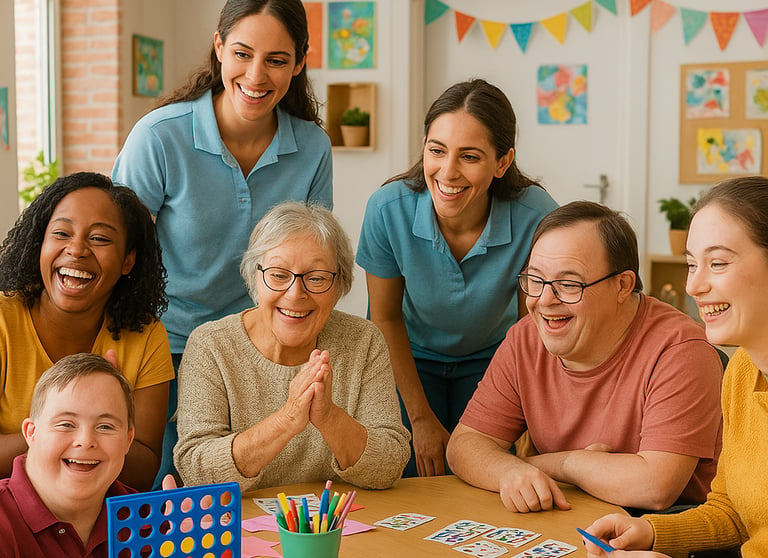

Group and centre based activities
This service enables providers to take participants to activities that occur within a group or centre, allowing participants to enjoy various events or activities.
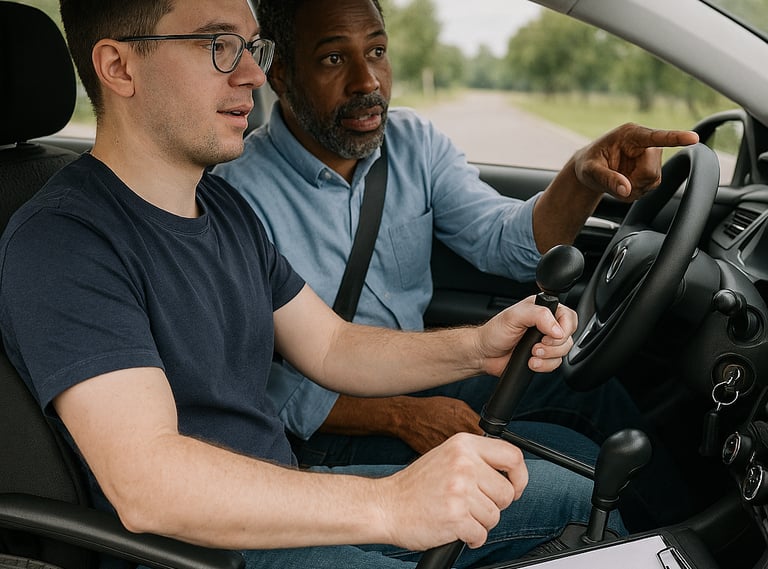

Exercise physiology and personal training


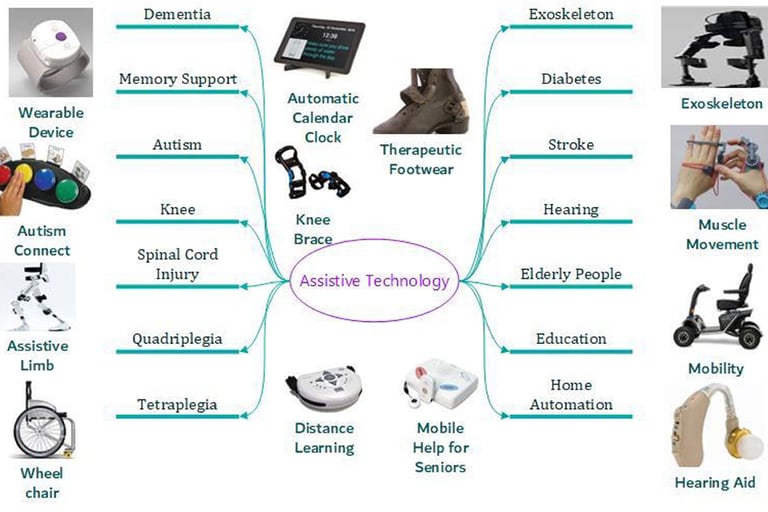

Assistive products for personal care and safety
This service enables providers to supply participants with necessary equipment to support their health, safety, and security.
This can include:
• Adaptions to shower systems
• Security installations
• Beds/Mattresses.
Other aspects of the service that can be charged for include product delivery, setup/installation, product training, and product maintenance.
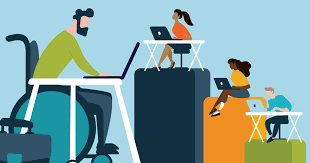



This enables providers to help participants obtain and sustain employment, with the service tailored to the individual participant’s needs.
This may involve crafting resumes, participating in job interviews, or assisting with workplace integration.




This service supports individuals with complex daily personal tasks, including bowel care, wound management, catheter care, and tracheostomy supervision. The service enables providers to assist and engage with high-needs participants in their homes and within the community, offering activity-oriented services.


High-intensity daily personal tasks
Personal mobility equipment
This enables providers to help participants gain access to mobility aids that promote independence and maintain functionality for as long as possible. This may encompass items such as wheelchairs, walkers, postural supports, as well as equipment like ceiling hoists.
Additional elements of the service that may incur charges include product delivery, setup/installation, product training, and product maintenance.


Assistance in coordinating or managing life stages, transitions and supports
This service helps participants enhance their ability to manage various aspects of life, including navigating different milestones, developing individual skills, and coping with the complexities of the NDIS. Providers may need to offer services such as peer support, mentoring, mental health recovery, and coaching. Several subcategories within this service significantly contribute to the NDIS.
They include:
Level 1 & 2 Support Coordination - This service aids participants in organising their support plans by linking them to various service providers and resources.
Level 2 participants will require more support than Level 1 participants, and their support coordinators will be more involved in their lives to help them understand and navigate their supports at a more advanced level.
Psychosocial Recovery Coach
Psychosocial recovery coaching focuses on helping with recovery-oriented practices, empowering individuals to make their own choices and live meaningful, purposeful lives while being valued members of the community—whether they fully overcome their mental health conditions or learn to manage them.
Recovery coaches will collaborate with participants, their families, carers, and other services to create, plan, and execute a recovery plan.


This service offers help and oversight for personal daily tasks, enabling participants to maintain as much independence as possible. Primarily, it involves assistance with hygiene, dressing, communication, and lifestyle support. In brief, it focuses on delivering general personal care and assistance.
Assistance with daily personal activities


Assistance with travel arrangements
This service assists participants with travel/transportation
to and from destinations.


Vehicle modification
This service allows providers to conduct services on a
participant’s vehicle to make it more user-friendly or
sustainable.
Examples include modifications for:
• Safety
• Comfort
• Practicality


Home modifications
Individual living options (ILOs) are housing arrangements that focus on the individual's needs. These include Living Alone, Co-Residency, Host Arrangements, and Living Together options. They serve as an alternative to traditional group home services. This represents a new approach for the NDIS to provide flexible, modern, and customised home and living support packages for individuals with low to moderate disability support requirements.


Assistive equipnment for recreation
This service helps providers to rent, utilise, or sell
Recreational equipment to bring some enjoyment and
excitement into a participant’s life.
For instance:
• Go-karts
• Stand-up paddle boards
• Sports equipment


Vision equipment
This helps participants obtain the necessary
equipment to support their visual impairments, including:
• Adaptive communication devices
• Braille equipment
• Video reading technology


Community nursing care
This service enables providers to deliver community
nursing support to participants who need greater
levels of care assistance.
Typically, this service encompasses advanced care or training
provided by an Enrolled Nurse (EN) or Registered Nurse
(RN).
Examples consist of:
• Bowel care
• Wound care
• Catheter care
• Tracheostomy management
• Case Management
• Palliative Care


Assistance with daily life tasks in a group or shared living arrangement
This service helps participants access care and support within various shared living arrangements, including SIL, STA, MTA, and ILO. It aims to enable participants to live as independently and autonomously as possible while still being in a safe and supportive environment.
The care provided typically encompasses all areas of personal care, including hygiene requirements and other day-to-day supports that participants regularly need.
The different living arrangements are outlined and clarified as follows:
Supported Independent Living (SIL) - This type of support provides assistance with or supervision of daily living tasks in a shared living environment. Usually, 2-7 participants stay here to receive ongoing support (up to 24/7). These services can be delivered in both SDA homes and standard
properties.
Short Term Accommodation (STA) - Short Term Accommodation, including respite, is funding for support and accommodation for a brief period away from a participant's usual home. It covers the cost of their care and accommodation for up to 14 days at a time. It can be used to provide the participant's usual caregivers a break, offer the participant a new environment, and sometimes even a holiday.
Medium Term Accommodation (MTA) - Medium Term Accommodation provides funding for a place to live if participants cannot yet move into their long-term homes because their disability supports are still being arranged. To qualify, they must be in the transition of moving into a long-term home.
Individual Living Options (ILO) - Individual Living Options (ILO) are living arrangements that prioritize the individual. They include Living Alone, Co-Residency, Host Arrangements, and Living Together options. These serve as an alternative to group home services. It is a new way for the NDIS to finance flexible, modern, and personalized home and living support packages for people with low to moderate disability support needs. This service comprises two components - 1. Exploration and design (conducted under 0106) which involves sourcing and managing the property. 2 - Support model (conducted under 0115) which pertains to the care provided in the home.
Innovative community participation
This service helps participants engage in mainstream activities they enjoy, such as football games, fishing trips, bowling, and more.


Development of daily care and life skills
This service is designed to help individuals and/or groups secure employment by leveraging professional networks to connect with employers. It also provides support for individuals to access and sustain higher education, involving guidance on setting objectives and strategies to achieve those objectives, as well as ongoing assistance throughout the execution of their plans.
This service is designed to help individuals and/or groups secure employment by leveraging professional networks to connect with employers. It also provides support for individuals to access and sustain higher education, involving guidance on setting objectives and strategies to achieve those objectives, as well as ongoing assistance throughout the execution of their plans.
Specialised support employment
Specialised support employment


This service enables providers to supply participants with necessary equipment to support their health, safety, and security.
This can include:
• Adaptions to shower systems
• Security installations
• Beds/Mattresses.
Other aspects of the service that can be charged for include product delivery, setup/installation, product training, and product maintenance.
Specialised hearing services
This service helps participants obtain and access necessary services to enhance their hearing capabilities and maintain proficiency for as long as possible.






This service helps participants to sustain their general living environment, which includes:
• Cleaning
• Gardening
• Basic indoor & outdoor home maintenance
• Laundry/Linen
• Meal preparation
Household tasks


This service helps participants obtain and access the necessary resources to enhance their hearing capabilities and maintain competency for as long as feasible.
Hearing services


This service helps participants obtain and access the necessary equipment to enhance their hearing abilities
Hearing equipment


Interpreting and translating
This enables providers to help participants gain access to interpreting and translating services. Participants might communicate in a different language or have a speech or hearing impairment, requiring support to maintain their quality of life. Providers can also utilise this service to access free translation services through the NDIS.
Examples consist of:
• Sign language communication
• Verbal language translation


Group and centre based activities
This service enables providers to take participants to activities that occur within a group or centre, allowing participants to enjoy various events or activities.


Assistive products in household tasks
This service enables providers to furnish participants with the necessary equipment for their homes, enhancing mobility and assisting with tasks to simplify their daily lives. Additional service aspects that may incur charges include product delivery, setup/installation, product training, and maintenance of the equipment.
Examples of products include:
• Aids for cooking
• Aids for cleaning
• Alarms
• Doorbells
• Modified clocks
• Safety & security
• Programmable memory aids


Exercise physiology and personal training
This service helps participants enhance their health and well-being by addressing dietary needs and encouraging physical activity.
It offers advantages through:
• Improved mobility for participants
• Greater independence and overall health


Participation in the community, social and civic activities
This enables service providers to help participants visit various locations in the community, such as shopping excursions, appointments, and recreational activities.


Therapeutic supports
This enables participants to access a range of support services that are both helpful and therapeutic.
Examples include:
• Physiotherapy
• Psychology
• Counseling
• Speech Therapy






This service helps participants enhance their health and well-being by addressing dietary needs and encouraging physical activity.
It offers advantages through:
• Improved mobility for participants
• Greater independence and overall health
This service helps participants connect with assistive animals to enhance their daily activities or enrich their lives with registered guide dogs and other support animals.
• Providers can help find a suitable animal and assist with its maintenance
• All animals must be fully trained and licensed
Assistance animals


This enables providers to help participants with their driving skills and training.
Examples include:
• Assisting in the study of a learner’s permit
• Recommendations for vehicle modifications
• Driver training with or without adjustments
• Helping participants learn how to address their challenges in driving


This service enables providers to deliver a tailored prosthetic to individuals who need help with limb function. The goal is to enhance the participants' quality of life while improving their functionality and mobility.
Customised prosthetics


This service helps participants to acquire and sustain essential life skills, including understanding public transportation, creating resumes, managing taxes, saving techniques, social abilities, and skills related to physical activities, among others.


This service allows providers to take participants to activities that are within a group or centre-based, which allow the participant to have enjoyment in various activities or events.
Management of supporting in participants' plans (Plan management)
Specialised driver training
This enables providers to assist participants in managing the funds they receive from the NDIS for services.
Plan management is responsible for settling invoices from other providers once the service has been finalised.
Specialised hearing services
This service helps participants obtain and access necessary services to enhance their hearing capabilities and maintain proficiency for as long as possible.

Holistic Disability Solutions transformed my life with their compassionate and personalized support. Highly recommended!
Sarah J.

The team at Holistic Disability Solutions truly cares and provides exceptional support for individuals with disabilities.
Mark T.

★★★★★
★★★★★
Support
Empowering individuals with compassionate disability support.
Care
Discuss with us
+61 0422 499 770
© 2025. All rights reserved Holistic Disability Solutions.
Complete our contact us form
